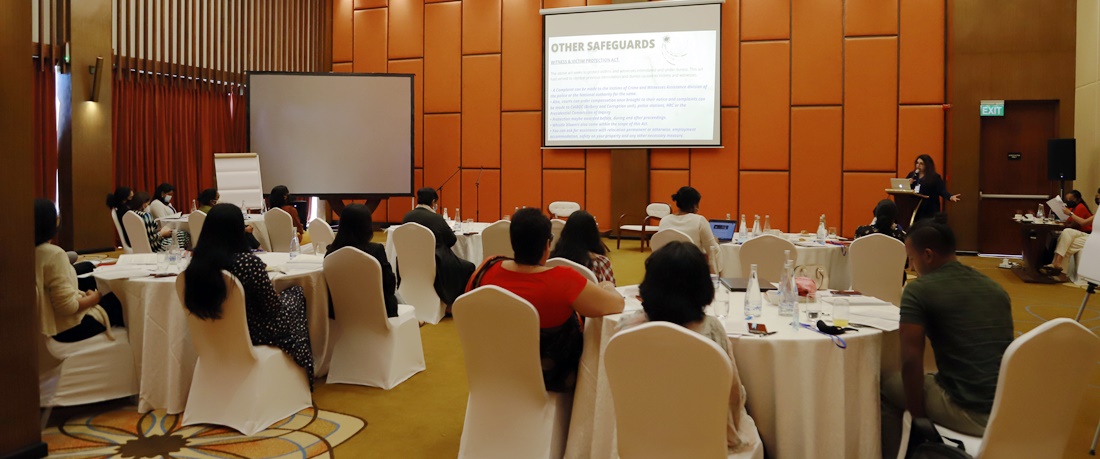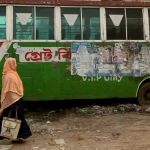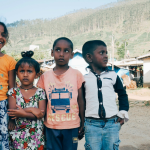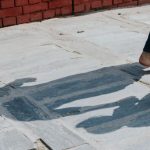Access to justice is a basic fundamental human right, yet it remains elusive for the most marginalised groups. A report published by Equal Ground in 2021 found that 12% of Sri Lanka’s population identified as LGBTIQ+. LGBTIQ+ persons face discrimination in various aspects of their lives, including; securing housing, employment and being victimised in the justice system. As a result, many people have been forced to hide their gender identity, exposing them to social and economic exclusion. The report also discussed how law enforcement is using Sections 365 and 365A of the Penal Code to discriminate against the LGBTIQ+ community, significantly impacting their lives. This led iProbono to develop a legal training programme specifically addressing access to justice issues for the LGBTIQ+ community, women and children.
In October 2021, iProbono successfully inaugurated its first-ever Access to Justice programme, a three-day residential training in Kosgoda, Sri Lanka. The event was supported by The US Embassy in Colombo and Sri Lanka Unites. Over 20 young lawyers were selected and trained in responding to violence and discrimination against women, children and the LGBTIQ+ community. Through this programme, we aim to build a community of lawyers passionate about protecting the most vulnerable groups of society and securing equal access to justice and opportunity for all. This will be achieved through establishing a fellowship that will train lawyers to provide advice, guidance and support to those who need it the most. The lawyers were provided with specialised training to handle and provide legal support in cases involving individuals from these groups.
Day 1

Saliya Peiris, President’s Counsel, President of the Bar Association of Sri Lanka
The residential training began with a keynote speech from Mr. Saliya Pieris, President’s Counsel, and the President of the Bar Association of Sri Lanka. He stressed the importance of developing a culture of pro bono work and promoting access to justice in Sri Lanka.
Thereafter, Mr Shamir Zahavir, Director, Justice Sector Reform Programme, Ministry of Justice discussed the importance of ensuring access to justice, the mechanisms required to mitigate the cost of litigation and current reforms that are underway in civil, criminal, and family law. He also highlighted the importance of striking a balance between the interests of lawyers and the public when formulating new justice reforms.
The first day of the Access to Justice Programme concluded with a panel discussion on the approaches taken by the Sri Lankan Bar Association and the Ministry of Justice on a variety of topics, including access to justice, the role of the judiciary and the need for digitisation of courts and litigation processes. Shevindri Manuel, Program Manager and Kaveesha Coswatte, Legal Analyst of iProbono Sri Lanka moderated the panel.

Left: Participants at the Access to Justice Programme on Day 1 // Right: Panel Discussion with Saliya Peiris and Shamir Zavahir. Moderated by Shevindri Manuel and Kaveesha Coswatte
Day 2

Dilrukshi Dias Wickramasinghe, President’s Counsel, Former Solicitor General
Mrs Dilrukshi Dias Wickramasinghe, President’s Counsel and Former Solicitor General of the Attorney General’s Department of Sri Lanka, kickstarted the next day with a keynote address, followed by an interactive panel discussion moderated by Aritha Wickramasinghe, iProbono’s Equality Law Director, training workshops, and a closing address by Zakira Rasooli, iProbono’s Afghanistan Country Representative.
In her keynote address, Mrs. Dilrukshi underlined the need of cultivating a culture of pro bono work and the value of volunteering as a young lawyer. On the panel with Aritha, sexism within the legal profession and the potential of pro bono interventions to address this challenge and secure the rights of disadvantaged groups were discussed.
Following the panel discussion, Jerusha Crossette-Thambiah, Attorney-at-Law, led the first training session on violence against women, including domestic violence, rape, sexual assault, and cyber violence. The workshop also covered important family law reforms and recommendations. Participants were provided with a detailed toolkit and relevant case law for the training sessions.

Day 2: Participants at the Access to Justice Programme
Milani Salpitikorala, Attorney-at-Law and Wasana Kannagara, Attorney-at-Law from the Child Protection Force, led the second training workshop on handling matters involving children, including incidents of physical and sexual abuse inflicted on children and institutionalised child violence, from a Sri Lankan and an international context.

Left: Wasana Kannangara, Attorney-at-Law conducting her training on handling cases involving children // Middle: Jerusha Crosette-Thambiah, Attorney-at-Law conducting her training on violence against women // Right: Milani Salpitikorala, Attorney-at-Law conducting her training on handling cases involving children.
Zakira Rasooli, iProbono’s Afghanistan Country Representative, concluded the day with her inspiring speech on the challenges she faced growing up in Afghanistan. She touched the hearts of everyone present with her life story.
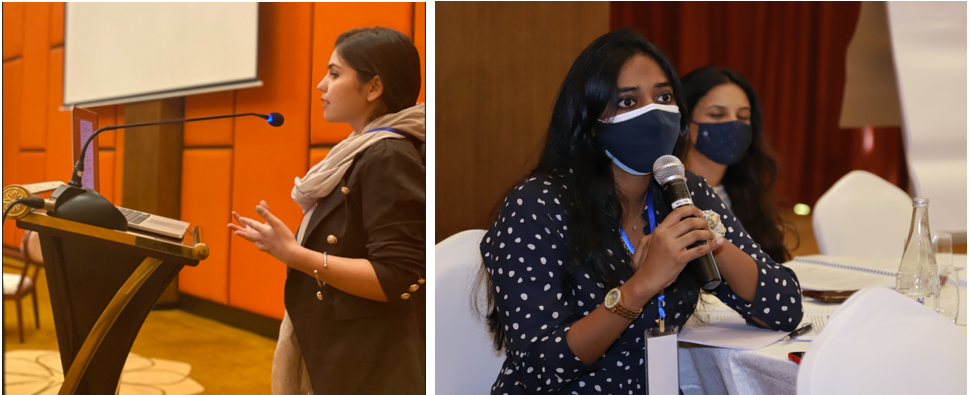
Left: Zakira Rasooli, iProbono’s Afghanistan Country Representative // Right: An attendee posing a question to the trainer.
Day 3
The final day commenced with Aritha Wickramasinghe discussing the evolution of LGBTIQ+ laws in Sri Lanka and areas in urgent need of reform.
Following that, Mahesh Senarathne, Attorney-at-Law conducted the programme’s last workshop. It focused on handling cases involving LGBTIQ+ issues. The workshop included a case study session, allowing participants to put their newfound knowledge into practice in an interactive environment.
The programme concluded with Bhoomi Harendran, Executive Director of the National Transgender Network, exploring the importance of intersectional advocacy and the rights of transgender sex workers in Sri Lanka.

Left: Aritha Wickramasinghe, Equality Director, iProbono Sri Lanka speaking on the laws relating to the LGBTIQ+ community // Middle: Mahesh Senaratne, Attorney-at-Law conducting his training on handling cases involving the LGBTIQ+ community // Left: Bhoomi Harendran speaks on intersectional advocacy and rights of transgender sex workers in Sri Lanka.
We are confident that by implementing this programme, young lawyers will be able to take on pro bono matters affecting people from marginalised communities. Our participants received first-hand tips and advice from senior lawyers who have been handling matters involving members of these marginalised groups. Since the conclusion of the programme, iProbono Human Rights Defenders have stepped forward to take on pro bono cases involving women, children and members of the LGBTIQ+ community.

iProbono’s Human Rights Defenders
We look forward to the continued support from young lawyers and legal experts to strengthen the pro bono movement in Sri Lanka. For more information about the Access to Justice Programme and iProbono’s work in the country, please contact Shevindri Manuel, iProbono’s Program Manager in Sri Lanka at shevindri.manuel@dev.matsio.com/matsio/oldiprobono.

